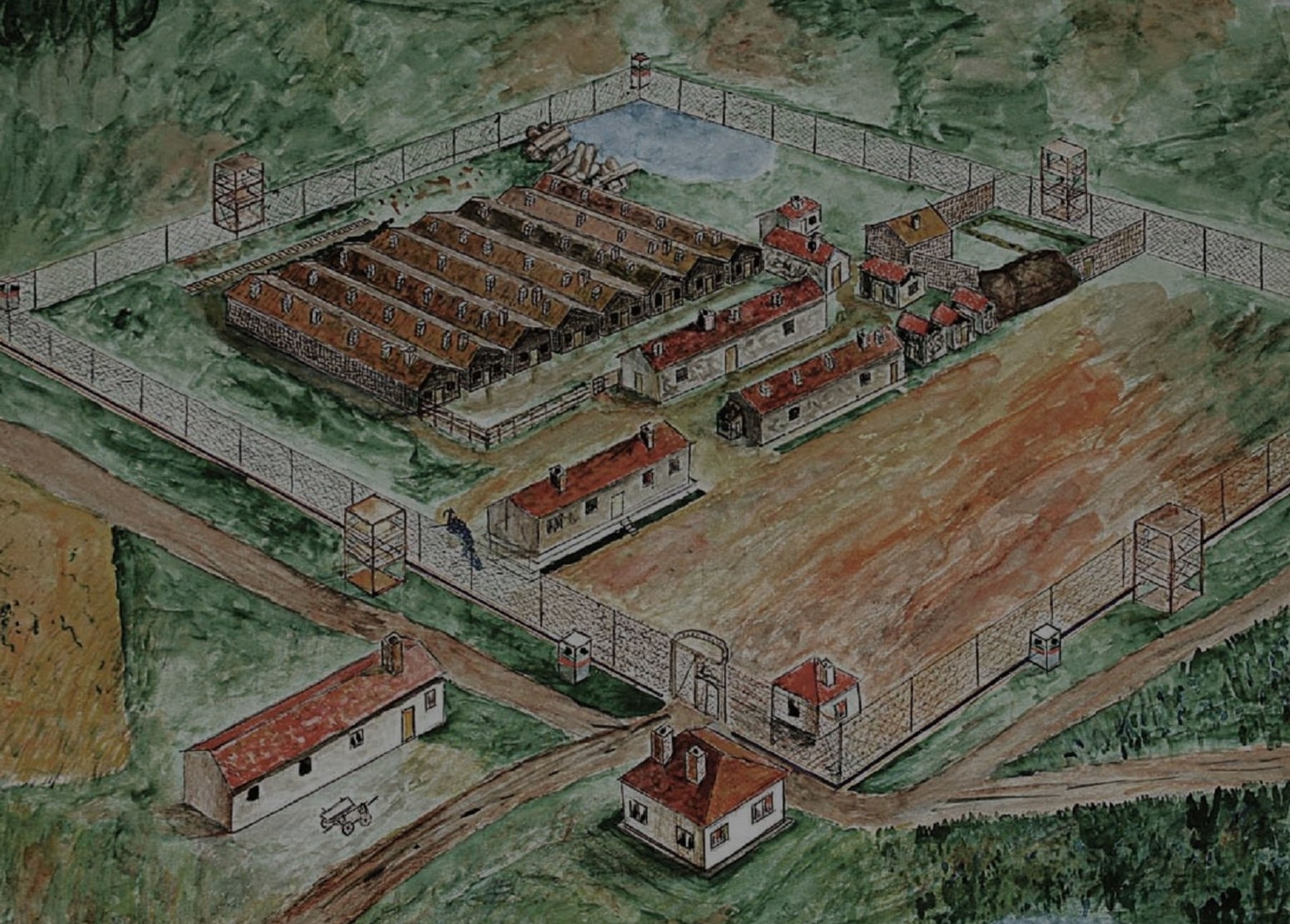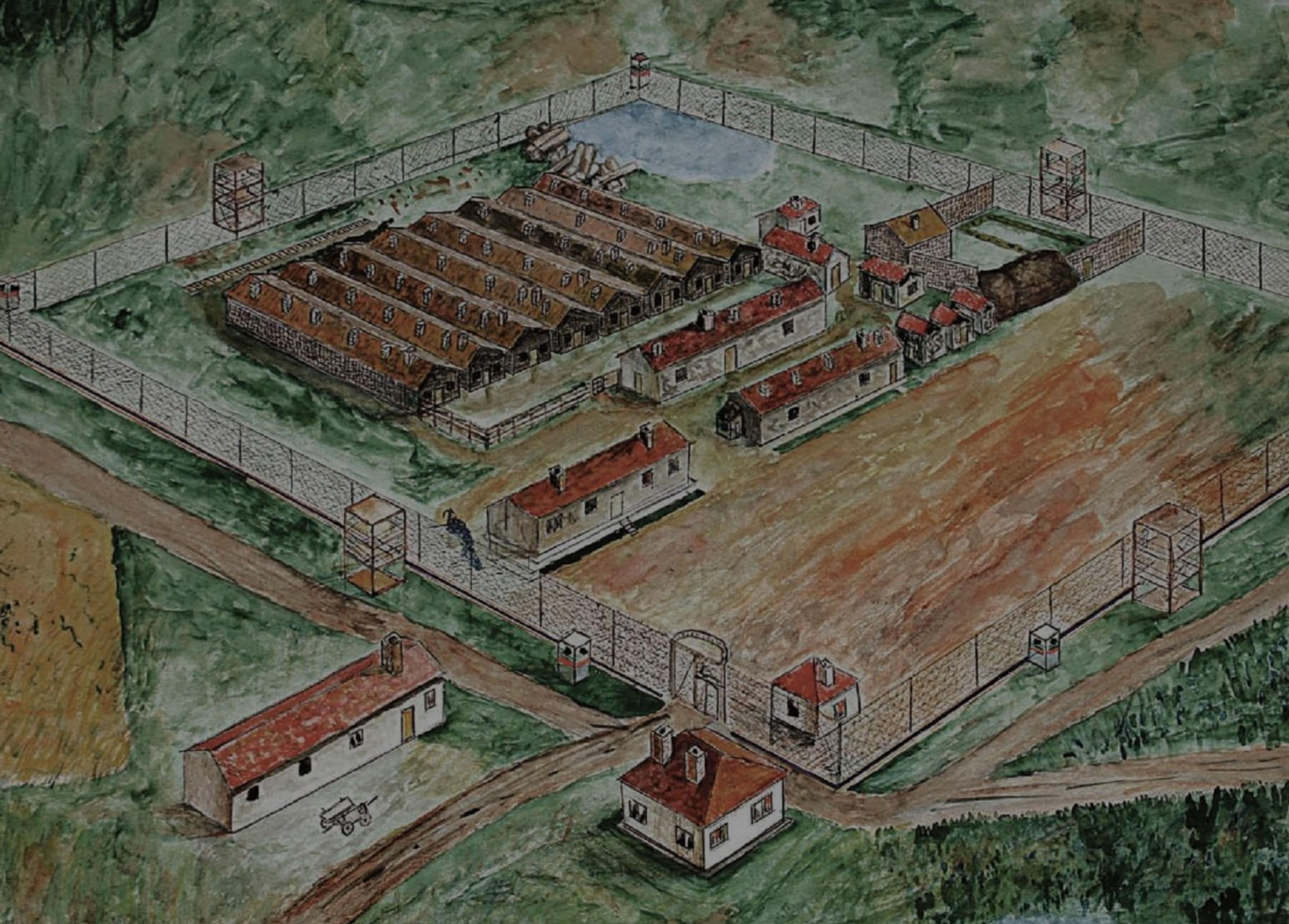The labor camps represent a form of administrative repression of the communist state, under which people were deprived of their freedom by decision of the Ministry of the interior (MoI), without a trial, without the right of legal defense, without a specific charge and without a set term of imprisonment. Labor camp prisoners didn’t know what the charge against them was or when they would be released. The MoI used the labor camp interment for repressions against various political, civil, social and religious groups (in the absence of an actual committed crime that people could be charged for), but also when an urgent general repression was needed.
The Belene camp was one of dozens of such camps in communist Bulgaria. Its special significance is explained by Borislav Skochev, author of the most extensive study of the camp – The Belene Concentration Camp 1949-1987:
“I once found it an injustice of historical memory that the Belene concentration camp has become a symbol of the communist repression, while the names of the dozens other concentration camps, which were also “the truest showcase of socialism” […] have more or less sunk into the mists of oblivion. Already at the start of my research, I knew that there is logic and justice in that. Belene was neither the first, nor the last communist concentration camp, but it existed for longer than the other camps, from 1949 until 1987, almost without interruption.
The geographic location of this island, separated from Bulgaria by the powerful waters of the Danube, sheds light on the experience of several generations of internees and the feeling that they were uprooted from their home country, written off by the world of the living. The communist authorities themselves to the end of the regime purposefully used the name “Belene” as a symbol of threat.” - The Belene Concentration Camp 1949-1987 by Borislav Skochev (2017)
It is in the courage of those who opposed the regime that our freedom today finds its hope and justification.
Belene is a truly beautiful place. The islands around Belene are home to hundreds of birds, and the Persina nature park in the backdrop of the setting sun and the golden Danube are breathtaking. The ancient customs building reminds us of the richness and fertility of the Bulgarian land.
But here lie buried the pain and trauma of the entire Bulgarian society from the years of the communist regime. Belene is the site of the largest and longest-lasting communist camp. Here, thousands of Bulgarians were subjected to forced labor, violence and humiliation without having committed a crime - without a trial and without a sentence. Some of them never left Belene.
In order to look forward, we need to be able to look backward, into our past. When it is close to the present day, it is especially painful, because our parents and grandparents are part of it. Some of them were victims, while others were directly involved in the crimes of the communist regime. But most of them were neither victims, nor hangmen. And they were not interested in what was happening in Belene, neither then, nor now. Knowledge is freedom.
It is in the courage of those who opposed the regime that our freedom today finds its hope and justification.
The communist regime in Bulgaria lasted 45 years (1944-1989). Thousands of executions, thousands of imprisonments in labor camps without trial and sentence, several bankruptcies of the state – these are only some of the “achievements” of this totalitarian regime.
In the present day we still live with the propaganda myths of the regime – for the good old times or the role of the Soviet Union as Bulgaria’s big, selfless brother.
This is why we make the survivors of the labor camps visible to society. We realize that it is in the courage of those who opposed the regime that today’s freedom finds its hope and justification.
In the present day we still live with myths from the propaganda of the communist regime.
In the present day we still live with myths from the propaganda of the communist regime.








4 years in labor camps
Offence: anarchist
8 months in the Belene camp
Offence: son of a provincial governor in the Kingdom of Bulgaria
40 days in the Lovech camp
Offence: hooligan, son of a member of the opposition
3 years in the Belene camp Offence: agrarian, member of the opposition






